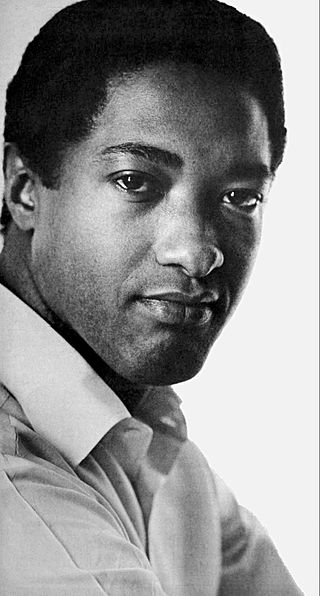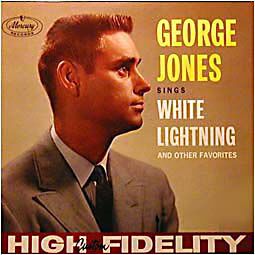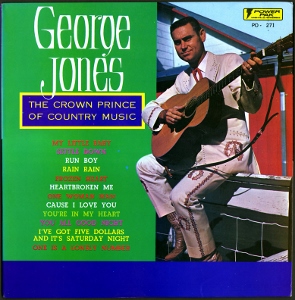
Samuel Cooke, known professionally as Sam Cooke, was an American singer and songwriter. Considered one of the most influential soul artists of all time, Cooke is commonly referred to as the "King of Soul" for his distinctive vocals, pioneering contributions to the genre, and significance in popular music. During his eight-year career, Cooke released 29 singles that charted in the Top 40 of the Billboard Pop Singles chart, as well as 20 singles in the Top Ten of Billboard's Black Singles chart. In 1964, Cooke was shot and killed by the manager of a motel in Los Angeles. After an inquest and investigation, the courts ruled Cooke's death to be a justifiable homicide. His family has since questioned the circumstances of his death. Cooke is included on Billboard's 2015 list of the 35 greatest R&B artists of all time.
"I Fought the Law" is a song written by Sonny Curtis of the Crickets and popularized by a cover by the Bobby Fuller Four, becoming a top-ten hit for the band in 1966. Their version of the song was ranked No. 175 on the Rolling Stone list of The 500 Greatest Songs of All Time in 2004, and the same year was named one of the 500 "Songs that Shaped Rock" by the Rock and Roll Hall of Fame.

The Lightning Seeds are an English rock band formed in Liverpool in 1989 by Ian Broudie, formerly of the bands Big in Japan, Care, and Original Mirrors. Originally a studio-based solo project for Broudie, the Lightning Seeds expanded into a touring band following Jollification (1994). The group experienced commercial success throughout the 1990s and are well known for their single "Three Lions", a collaboration with David Baddiel and Frank Skinner which reached No. 1 in the UK in 1996 and 2018, with a re-worked version also reaching the top spot in 1998.

"Sh-Boom" is an early doo-wop song by the R&B vocal group The Chords. It was written by James Keyes, Claude Feaster, Carl Feaster, Floyd F. McRae, and William Edwards, members of The Chords, and published in 1954. It is sometimes considered the first doo-wop or rock 'n' roll record to reach the top ten on the pop charts, as it was a top-10 hit that year for both the Chords and The Crew-Cuts. In 2004, it was ranked No. 215 on Rolling Stone's "Top 500 Best Songs of All Time".

"It's Not Unusual" is a song written by Les Reed and Gordon Mills, first recorded by a then-unknown Tom Jones, after it had first been offered to Sandie Shaw. He intended it as a demo for her, but when she heard it she was so impressed with his delivery that she recommended he sing it instead.
"Along Came Jones" is a comedic song written by Jerry Leiber and Mike Stoller and originally recorded by the Coasters, in 1959 peaking at number 9 in the Billboard Hot 100 but recorded by many other groups and individuals in the years that followed.

Sings Country and Western Hits is the 1961 country music studio album released in May 1961 by George Jones. The album was Jones' tenth studio album release since his debut LP in 1956. It would be one of his last with Mercury Records, as he switched to United Artists in late 1961.

White Lightning and Other Favorites is a studio album released by George Jones on May 26, 1959. Its title track "White Lightning" was a #1 Country hit in 1959.

"Little Red Rooster" is a blues standard credited to arranger and songwriter Willie Dixon. The song was first recorded in 1961 by American blues musician Howlin' Wolf in the Chicago blues style. His vocal and slide guitar playing are key elements of the song. It is rooted in the Delta blues tradition and the theme is derived from folklore. Musical antecedents to "Little Red Rooster" appear in earlier songs by blues artists Charlie Patton and Memphis Minnie.
"White Lightning" is a song written by the rockabilly artist J. P. Richardson, best known by his stage name, the Big Bopper. The song was recorded by American country music artist George Jones and released as a single in February 1959. On April 13, 1959, Jones' version was the first number-one single of his career. The song has since been covered by numerous artists. Richardson never got to see the success of the record, as he had been killed in an airplane accident 6 days before its release.

"Only Sixteen" is a song by American singer-songwriter Sam Cooke, released in May 1959. It was a top 15 hit on Billboard's Hot R&B Sides chart and also charted within the top 30 of the Billboard Hot 100 and the UK Singles Chart. In the UK it was covered, and taken to No. 1, by Craig Douglas.
"A Good Year for the Roses" is a ballad written by Jerry Chesnut and originally recorded by American country singer George Jones. It rose to #2 on the country singles chart in 1970.

The singles discography of American country artist, George Jones, contains 182 singles. Of the total, 136 were released with Jones as the solo artist. In addition, 31 were issued with Jones being part of a collaboration. Thirdly, eight singles were issued with Jones being part of a featured act. Fourthly, seven released were promotional singles. Additionally, 14 songs that are not released as singles are included that made any major chart. Finally, 21 music videos which were first issued as singles are also listed. Jones had his first chart success in 1955 with several top ten Billboard Hot Country Songs singles: "Why Baby Why", "What Am I Worth" and "You Gotta Be My Baby". After several more top ten releases, "White Lightning" became his first to top the Billboard country chart. Along with "Who Shot Sam", both singles were also his first to make the Hot 100 charts.
"Treasure of Love" is a song by George Jones. It was released as a single on Mercury Records and reached No. 6 on the US country chart in 1958.
"Aching, Breaking Heart" is a song by George Jones. It was his last single on Mercury Records before moving to United Artists. The song peaked at number five on the Billboard country chart in March 1962. During his tenure with Starday and Mercury, Jones had amassed eleven top-ten hits, with "White Lightning" and "Tender Years" both topping the charts. However, Jones' producer and manager Pappy Daily had secured a more lucrative deal with UA. In the 1994 Mercury Jones retrospective, Cup of Loneliness: The Classic Mercury Years, Colin Escott notes, "Mercury lost George just as he was on the verge of ruling the charts. Art Talmadge had left Mercury Records and gone to United Artists and when George's Mercury contract expired at the end of 1961, Pappy took him to U.A. The first single, the classic "She Thinks I Still Care", was one of seven records George would chart in 1962."
"Rock It" is a rockabilly single by country music singer George Jones. Not wanting to use his real name and jeopardize his reputation as a country artist, Starday Records released it under the pseudonym "Thumper Jones."

Live at Dancetown U.S.A. is a live album by American country music artist George Jones. It was recorded in 1965 but was not released until 1987.

The Crown Prince of Country Music is the 1960 country music compilation album released by Starday Records of previously unissued recordings released in January 1960. The album's original release, like the reissue edition, did not chart.

"We Fly High" is a song by American rapper Jim Jones, released as the lead single from his third studio album, Hustler's P.O.M.E. (2006). The song is Jim Jones' highest-charting single to date, charting at number five on the Billboard Hot 100. It was written by Jones and produced by Zukhan Bey who produced his previous single, "Baby Girl".

"Shot in the Dark" is a single by Australian rock band AC/DC from their seventeenth studio album Power Up. The song was recorded late 2018 to early 2019. It was released on 7 October 2020, and is the band's first single released since 2015's "Rock the Blues Away" from their album Rock or Bust. The song was used as the official theme for WWE Survivor Series and is part of the MLB The Show 21 soundtrack.












